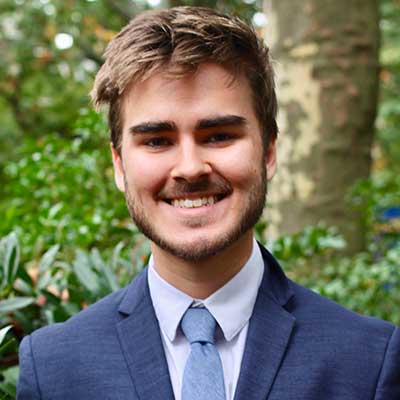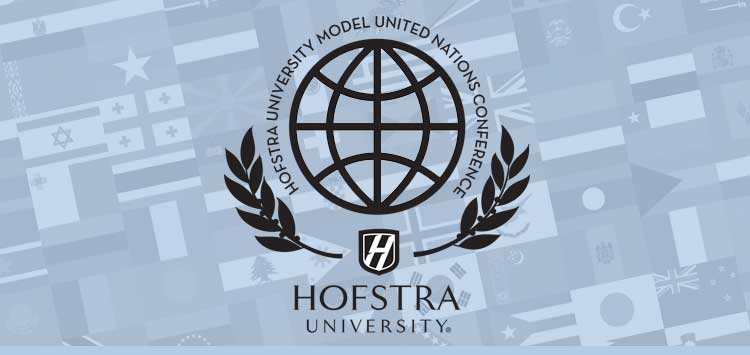Council of the European Union
HUMUNC 2018
The Council of the European Union works to provide a voice for the twenty-eight member states of the European Union. While the European Parliament and Commission work to advance the interests of the union as a whole, the Council provides members with a forum to express their individual interests. Alongside the Parliament, the Council acts as the legislature of the European Union, forming the laws which direct the world’s most powerful supranational institution. Its Justice and Home Affairs Council brings together the ministers of justice and home affairs from each member state to coordinate action relating to migration, asylum, citizenship, discrimination, trafficking, and terrorism.
At the 2018 Hofstra University Model United Nations Conference, the Council of the European Union will operate as a United Nations General Assembly–style committee to debate the refugee crisis facing Europe. Students will work in double delegations, with two delegates from the same school representing each EU member state. The refugee crisis has heightened tensions between member states and exposed flaws in major European legislation governing migration and asylum. In this committee, delegations will work to revamp these strained systems. With this new framework in place, the committee will move into a General Assembly–crisis hybrid format. Delegations will amend their framework in response to the new realities resulting from the linked Syrian Civil War crisis committee.
Alex Hayes
Dear Delegates,
As chair of the Council of the European Union, I would like to welcome you to the Hofstra University Model United Nations Conference and take this opportunity to introduce myself and my committee.
I am a senior here at Hofstra, with majors in political science, economics, and public policy, with a concentration in migration policy and a minor in European studies. I am currently finishing my undergraduate thesis on German and Austrian policy responses to Europe's refugee crisis, examining the role played by the European Union as well as the many other factors that determine state policy. Last year I served as dais in Hofstra's first African Union committee, and I am excited to continue that committee's legacy by chairing Hofstra's inaugural European Union committee, the Council of the European Union. Outside of HUMUNC, I serve as the secretary of Hofstra's Model UN club on campus, and have represented Hofstra at the annual University of Pennsylvania Model United Nations Conference. While my most extensive research has focused on migration in Europe, closer to home I have researched the political integration of immigrants on Long Island and in New York City, and I am currently interning at a nonprofit immigration center, teaching English and citizenship classes for immigrants in Hempstead.
As perhaps the most powerful supranational, intergovernmental institution in the world, the European Union considers a wide range of issues, but it only seems appropriate to open Hofstra's inaugural European Union Committee with one of the most pressing issues facing the union. Not only has Europe's refugee crisis produced a slew of European Union directives and policies, it has necessitated the re-evaluation of core European institutions and at times threatened to tear the union apart. Each delegation must carefully consider both their own country's policy positions and the effects of these on the power and efficacy of the European Union. This issue brings to light the conflict between state sovereignty and the role of international organizations in confronting major issues such as migration. Delegates should seek to build resolutions that balance the need for cooperation between EU members with states' desires to preserve sovereignty and control over their own policy. While the refugee crisis has revealed that long-standing EU policies must be updated to address the new realities of migration, the member states each have distinct opinions how these new laws are formulated.
While General Assembly–style committees traditionally debate two topics at HUMUNC, this committee has what I hope will be an exciting difference. After delegations submit resolutions to (hopefully) solve the EU's refugee crisis, our committee will begin receiving periodic news briefs from the crisis committee addressing the civil war in Syria. Delegates will have to act quickly to address new challenges arising from the crisis in Syria, which may alter the population seeking refuge in Europe and change public opinion within the EU's member states, putting political pressure on governments to alter their positions and policies to address these new realities. Events ranging from terrorist attacks to a deal with Turkey to stem the flow of migrants into Europe have vastly changed the debate around refugees in Europe, so delegates should be ready to react to similar events which may arise in our committee.
It is my hope that this link between the Council of the European Union and the crisis in Syria will give you the opportunity to experience the challenge of building consensus in an ever-changing political environment. I look forward to meeting all of you and seeing how the debate unfolds. Best of luck!
Your chair,
Alex Hayes

